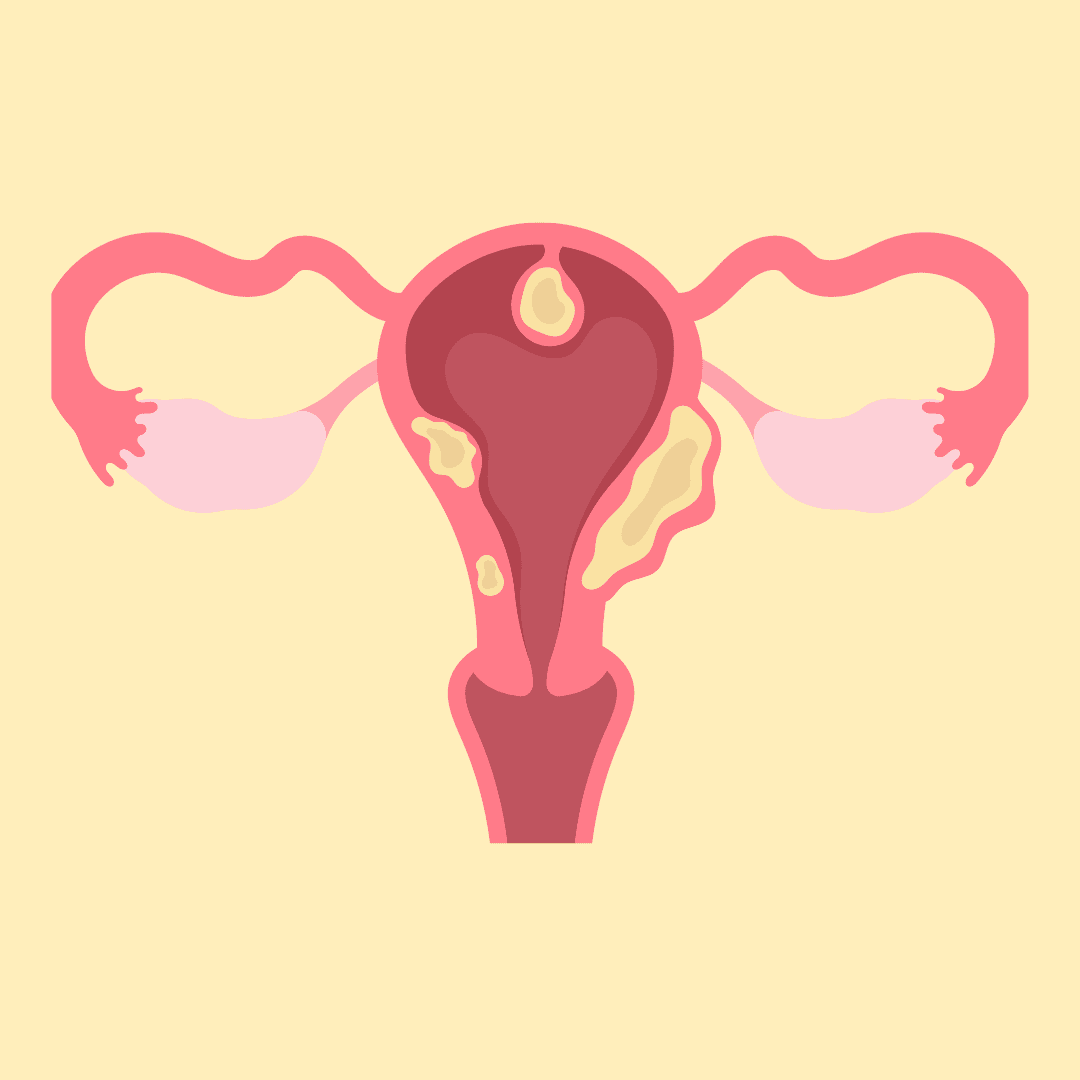-
How Sleep Deprivation Affects Black Women
Did you know that sleep deprivation costs the UK £40 billion a year? Without sleep, we don’t feel refreshed, we are more tired during the day, and we lack energy. This topic is important. Sleep deprivation affects many, and Black women need more awareness about it.
Sleeping is one of the best forms of self-care for our minds and bodies. Without enough sleep, our mental health suffers.

An AI image by DALL-E 3 of a black woman sitting in the kitchen, tired. What is sleep deprivation?
The NHS defines sleep deprivation as “when we are not getting enough sleep.” Mental Health UK recommends “that adults up to 64 should sleep 7 to 9 hours a day. This depends on their age, lifestyle, and health.”
Here are some signs of feeling sleep deprived:
- You find it difficult to fall asleep.
- You wake up several times during the night.
- You have difficulty focusing.
- You end up lying awake at night for a long time.
How detrimental is sleep deprivation in the UK?
A study from the Guardian revealed that people in poorer parts of Britain sleep less. They also have more trouble with sleep quality than those in wealthier areas.
The article says that Black people had the lowest sleep quality among all racial groups. You may have poor sleep quality if you wake up too early, wake up at night, sleep very little, or feel tired during the day.
Also, 24.7% sleep less than the required hours compared to 7.7% who sleep longer. On race, 82.4% of white people rose without difficulty in the morning. Seventy-four point four per cent of black people, seventy-four per cent of mixed-race people, and seventy-three per cent of Asian people followed this.
Black women face a hidden crisis of sleep deprivation. This issue needs greater awareness, as it continues to grow.
This is a big national concern. If the British government loses billions from sleep deprivation, it affects us all. We should all worry.

An AI image by DALL-E 3 of a black woman lying awake in bed with a bonnet. How does sleep deprivation affect Black women?
Sleep deprivation impacts black women for many reasons. We often bear heavy responsibilities. We should care for others. Yet, we often don’t get the support that other women get from the men in our communities.
Without protection, black women often face more intimidation, racial discrimination, and violence. This comes not only from black men but also from men of other racial groups.
An example is Diane Abbott, the first black woman politician to be a member of the Labour Party in England. Mrs Abbott is a respected politician, but she still faces racism and death threats.
There are mental and physical effects of dealing with sleep deprivation, such as:
- Feel more isolated
- Depression
- More likely to be affected by physical health problems.
- Feel irritable
- Poor focus, concentration, and memory.
How can racism and stereotypes have an impact on sleep quality?

An Ai image by DALL-E 3 of a black woman looking tired whilst trying to journal. We also face ridiculous stereotypes about black women. These include the Jezebel, the angry black woman, and the strong black woman. There is also the false idea that black people are lazy, when anyone can be lazy.
This is harmful because it shows how far white people in power will go to create false images of black people. These stereotypes, like the idea that black people are lazy, still exist today, which is shocking to me.
History shows that slavery was a harsh system. It contributed to the wealth of many Western nations, including Britain.
If black women aren’t getting enough sleep, it affects their mental and physical health. The way we concentrate is getting worse because our brains are craving rest.
Getting less sleep makes you more likely to catch a cold. It also makes it harder to manage stress, which can increase anxiety. To make it worse, the lack of sleep can also affect memory.
Quartz pointed out that sleep deprivation can lead to poor mental health. This includes issues such as obesity, increased risk of blood pressure, diabetes, and depression.
Black British people often have poorer sleep quality. This lack of sleep can harm mental health, leading to stress, anxiety, and depression.
The Guardian noted that people with jobs tend to sleep better than those without. They also said that educated men who are single or live in shared houses in wealthy areas sleep better.
How does low income affect Black women with sleep deprivation?

An AI image by DALL-E 3 of a black woman praying before sleep. Mental Health UK noted that worries about money, finances, life events, devices, and the environment can hurt sleep quality.
They noted that 1 in 5 people don’t get enough sleep. Also, 25% say finances affect their sleep. Women from BAME backgrounds are more likely to struggle with sleep deprivation.
If you are employed, then you will not worry as much about finances, and you are more likely to sleep better. If you’re unemployed, a lack of money may lead to stress, anxiety, and depression.
Imagine you are a black woman from a low-income home, and you are the main earner. Your sleep quality might suffer if you live in a deprived area. This can happen if you have a lot of responsibilities, like being a single mum or being in a relationship, and you are the main breadwinner.
This study didn’t mention black women living in wealthier areas. It only focused on educated men. Did they mean white men, mainly white men, or men from various ethnic backgrounds in those areas?
In addition, the study lacks details on black women in wealthy areas. It doesn’t say if they sleep better or worse than educated men, or if they live in shared housing.
Are middle-class black women more likely to experience sleep deprivation? This could be due to their work in corporate environments. Black women have to work twice as hard and face microaggressions.
Also, the study was created focusing on people aged 40 to 69, so it doesn’t take into account other generations, such as younger millennials who are between 29 and 40.
Black Women and the Power of Rest
There are organisations led by black people that consider the need for rest and sleep. These organisations in the USA know that sleep deprivation impacts the black community.
The Nap Ministry is an organisation founded in 2016 by Tricia Hersey. She is an author who shows how racism affects the rest of the Black community.
They offer resources and support for community healing. They also highlight how important rest and sleep are.
Another initiative, called Black Power Naps, teaches Black communities why rest matters. Vogue says Fannie Sosa and Navild Acosta started this initiative, and they believe society has never valued rest for black people.
They talked about how slavery in the USA took away time and rest from black people. This caused a sleep crisis. The Black Power Naps are rising to the challenge. They are using installations, zines, opera, and more. They call for more rest as reparations and a time and place to dream and sleep.
Final Thoughts
This was an interesting topic that was inspired by an Instagram post I saw created by The Noire Space. They talked about the importance of sleep, and I got an idea of writing about sleep deprivation affecting black women.
This has been a personal experience, and I wanted to write about this topic because it’s not discussed. Where do black British women go to talk about sleep deprivation other than the GP? There are not many sleep wellness organisations catering to rest and sleep for black British women in the UK.
Thank you for reading! If this article inspired you, don’t forget to comment below. It helps me create more content uplifting Black women. We often hear that history repeats itself, but what if we could rewrite the narrative? What if we could make sure Black women’s contributions to certain musical genres were no longer ignored? That’s what I’ll be exploring next.
-
How To Break Generational Trauma: 9 Lessons to Unlearn From Your Toxic Upbringing
Disclaimer: This blog post talks about unlearning toxic lessons learned from a toxic upbringing and healing from childhood trauma as an adult. This is an informative post intended to educate, and there may be errors and information that may be omitted. I am not a qualified psychologist or a mental health professional, so please read this blog post with caution. The focus of this blog can change at any time.
Introduction
How do you unlearn all the toxic behaviours you learned from toxic African parents? It’s not easy, and it can be frustrating because they refuse to take accountability and care more about themselves than their own children’s needs.
One thing I’ve noticed is that some parents haven’t healed, and they choose not to, and it’s a shame. But we have to move on and live our lives, and that starts with breaking the cycle of generational trauma.
So, how can you break free from toxic parenting and move on from all the shame and criticism that you had to deal with as a child? Now that you are an adult, you can start making decisions such as limiting your contact or removing all contacts with your parents.
The healing journey isn’t a walk in the park, it is becoming more aware of the possibilities in life and how you can remove yourself from those unfavourable circumstances and start living a life where your needs are met and fulfilled.
The scars from a toxic household don’t heal overnight. They hide in our mindset, and we end up doubting ourselves, developing imposter syndrome and hiding from the world, not using the gifts that we possess.
Neo soul singer Erykah Badu was right about Bag Lady when she sang “Bag lady you gon hurt yourself, you got too much stuff…” This song is about not letting past relationships affect your current relationships, a concept that can also be applied to unlearning and healing from generational trauma.
Here are 9 crucial lessons to unlearn so that you can make changes, even if you live at home with your parents, you can still limit contact with them and focus on yourself.

An image by Dall-e 3 of a black woman hugging her inner child. According to PsychCentral, they defined toxic childhood as a period in a person’s childhood that has unfavourable experiences that affect them later in their adulthood.
Examples are:
- You experienced different forms of abuse- verbal, emotional, psychological and sexual.
- Your parents were overprotective, controlling or neglected.
- You didn’t feel supported and received a lack of validation from parents or other authority figures.
- Your emotional needs weren’t met.
1. Love is Conditional
If your parents never showed you affection, chances are that they grew up in a household where affection wasn’t prioritised.
In addition, you don’t know what love is unless you watch films and TV shows, because that was never shown to you growing up.
If we were taught that love is conditional, then this means parents will show you love if you obey them or do well in school. If that was your understanding of how your parents show love, then it is very negative because this could affect you when you start to have relationships with other people.
This implies people pleasing, which is something that doesn’t make us look and feel confident. There is a song called Show Me Love by Robyn, and as I got older and started to understand the song, she was talking about love as a behaviour, which made me realise that the concept of love is a behaviour.
This affects black women because we watch and we hear stories online about black women in unhealthy relationship dynamics where there is the “struggle love” and “ride or die”, which is a disastrous form of showing love and doesn’t benefit black women in any shape or form.
The struggle love idea is too rampant, and it tells black women that we have to ride or die for a male partner who doesn’t show any love towards black women and ride or die for a partner who doesn’t even treat them right, let alone respect black women.
Now that we understand how the concept of love shapes our understanding of how we think of ourselves, what we can do is think about how we give and receive love. One thing you can start doing is to practice self-compassion. Looking back, I realised I didn’t practice self-compassion, and it’s easy enough to ignore your needs. Now, saying affirmations about yourself in the mirror and taking yourself out on solo dates, even starting a hobby, is one way to start healing from the lack of affection and unlearn and reset your life.

2. Hiding Your Feelings
The second toxic behaviour to leave behind is hiding your feelings. The lack of emotional expression is an unhappy state of mind to be in and affects mental health and confidence. This teaches people at a young age that hiding how you feel is normal, and that is not the case. It normalises the pain and glorifies the idea of hiding your feelings and suffering in silence.
One self-care tool that helps is attending therapy, there are plenty of affordable and free counselling services available for black women. For example, in Manchester, the Windrush Centre offers free therapy. This was the first therapy service that I used, thanks to my sister’s recommendation, and it helped me start my healing journey.
3. Unlearning silent treatment
Another toxic behaviour that we have to unlearn is silent treatment. This was mentioned in a previous blog post about toxic African mothers, but silent treatment is a tactic African parents use to punish their children. Instead of communication, they use silence as a way to show their true emotions.
Silent treatment is not the best way. If there is conflict, the best thing to do is to remove yourself from the situation and reflect on what happened and then try and speak to the person.
With toxic parents who don’t prioritise communicating with their children, it’s difficult, and that is one of the challenges of dealing with toxic African parents- they don’t talk about things with their children openly.

An image created by DALL-E 3 showing a black woman walking down a sunny path. 4. Rest Is Not Prioritised
Another toxic behaviour we are leaving behind is not resting. We know the importance of rest, but growing up in a household where you had to do something. If you weren’t doing anything, most likely they would give you something to do.
This implies that we have to do something all the time, and one thing that you don’t think about growing up is the value of rest, and that is something you start to understand as you navigate adulthood.
5. How Not To Argue
Another toxic behaviour we are leaving behind is how not to argue, as in you can’t speak up or state your own opinions because your parents’ opinions matter more than your feelings.
Have you ever had a conversation with your parents or one of your parents, and you were talking about some things and you had different opinions, but it felt like your parents were trying to “win” the discussion, and you felt drained and decided not to continue because it’s not worth your energy.
6. Projection
Another thing we are unlearning and letting go of is allowing our parents’ projections to affect our mental health. This is where your parents like to project their problems onto their children and take out their anger on their children.
This can cause guilt because children may feel obliged to take on their parents’ problems, and may even lead to parentification, where the children are taking care of their parents.
This is making sure we remain unaffected by our parents’ demands because, at the end of the day, we should never allow our parents’ projections to affect our emotions.
7. Lack of emotional connection
The lack of emotional connection between adult children and parents is shocking when you haven’t felt supported growing up, and you didn’t feel like they cared about your interests and were never interested in getting to know you as a person.
As an adult, you learn to understand the importance of developing emotional connections with other people and how important it is to check in with yourself.

An image of a beautiful, dark-skinned black woman holding up a NO sign to set boundaries. 8. The constant justification
Have you ever felt like you had to explain why you are doing something? Some examples could be where you are going, going to the bathroom or why you are dressed in a certain way or wearing your headwrap a certain way.
It’s these little things that make things look bigger than what it is, and there is no need to always justify why you are doing things, and some things don’t need explanation.
9. Always be available
Another lesson to unlearn is that you don’t have to be available to them 24/7; you are not required to be available to your parents all the time.
You are not their chauffeur, receptionist, translator, maid, cleaner or chef. This is why boundaries are important, and not being taught boundaries at a young age is concerning because it is boundaries that you can keep your energy in check.
Final Thoughts
I appreciate the fact that you took your time to read this blog post. If this article moved you, then don’t forget to comment below about how you felt about this article. I want to start a conversation between black women on ways we can unlearn and heal to live our best lives. It fuels my mission of elevating and empowering black women. Let’s take it further and reclaim our narrative together.
-
Rejecting The Strong Black Woman Stereotype: A Deep Dive
Introducing the strong Black woman stereotype
The strong Black woman stereotype suggests that Black women can handle any challenge without support and struggle. This stereotype ignores the real experiences of Black women, placing unrealistic expectations on our shoulders.
Many Black women feel the pressure to fit into the “strong Black woman” stereotype, often sacrificing their own needs and health. This expectation can lead to burnout, isolation and health conditions. Breaking free from this narrative is essential for well-being and healing.
This topic will explore the roots of the strong Black woman stereotype, its impact, and the practical steps of embracing vulnerability and rejecting the stereotype. Discover how to reclaim your identity and prioritise your mental health without the weight of societal expectations.

What is the strong black woman stereotype?
The strong black woman stereotype is the “cultural expectation” that has been passed on to young black girls and women to be strong, caregiving and handle the stresses of life with no support and reciprocation.
We have been socialised to be strong and this has affected the mental and physical health of black women globally.
This is important because cultural expectations are like an imaginary bag on our shoulders, and we are expected to carry the world on our shoulders.
It also impacts our mental and emotional well-being because we have to endure so much and exude strength all the time.
The strong black woman feels like we can’t have a break and take care of ourselves, we can’t be selfish, we can’t vent our frustrations and express our true emotions.
This is important because if we look at the Western beauty standards black women are associated with strength then by default we are not seen as feminine or vulnerable or human meaning that we are not worthy of protection.
In contrast, white women are seen as feminine, soft and beautiful and even though she can be an independent woman, a girl boss or a feminist she will be protected by white men which is understandable because they have made sure that they are protected which makes sense.

An image created by Dall-e 3 shows a black woman meditating with a book saying No. What is the origin of the strong black woman stereotype?
Bell Hooks the black feminist and author stated that the narrative relates to the North American transatlantic slavery where black people had to endure the brutal working conditions of the legal and economic system that made white people rich as a result of free labour.
During the height of slavery, black women had to cope with the physical, mental and sexual abuse and as a result, adapted to be strong as a way of dealing with the brutal reality of living on the plantation.
What does the strong black woman stereotype look like?
An example is the role reversal of some black male and female relationships especially looking at celebrities where you can see that many of these relationships do not benefit black women in any shape or form.
It puts black women in a masculine role and often this can lead to some relationships where the black woman isn’t resting in her femininity. In addition, she is in her masculine energy which adds even more stress to her mental health.
The only positive outcome is for her partner because he doesn’t assume the responsibility of providing and protecting, which can lead to abuse and manipulation. Furthermore, this demonstrates a lack of empathy and concern for black women in the black community.
What is the superwoman schema?
An author named Michele Wallace wrote a book called Black Macho and the Myth of the Superwoman, identifying the term “superwoman.”
Developed by Woods-Giscombe, the superwoman schema illustrates the collective signs that arise when one is socialised to show strength at all costs. It captures a set of beliefs black women share about the reality of being strong.
It is often associated with pride and self-confidence but the strong black woman image has been linked to anxiety and stress.
The 5 dimensions of the superwoman schema include:
- An obligation to remain strong- capable of dealing with all the trials and tribulations by herself.
- Not embracing vulnerability- this myth that being vulnerable shows weakness
- Be motivated to succeed- this shows how focusing your energy to succeed leaves little room for yourself and highlights the sacrifice black women make that makes our health worse.
- To hide your true emotions- this myth is based on the idea that it involves completely hiding your emotions.
- Take care of everyone at the expense of your health- the obligation to take care of everyone else.
The Burden of the Superwoman Image
The strong black woman is embedded in society and it has been associated with negative associations regarding black women such as the Mammy, Sapphire and Jezebel.
Some of us don’t seek professional help because of “the mental health stigma, cultural mistrust and beliefs” that are pervasive in the black community.
Even though more black women are rejecting this narrative, more work needs to be done so that it’s normal for other black millennials, Gen Z and beyond to feel empowered enough to ask for help in the future.
In this article which looks at Afro-Caribbean women in the UK, the analysis section reveals interesting experiences about how black women and men have been raised and how these participants have to carry the burden in their households.
There are plenty of discussions on social media about the dusties and the topic of going 50/50 including the disrespect of black women by these men.
The role reversal doesn’t benefit the black woman even if she doesn’t mind paying 50/50 because she is still going to end up contributing more, especially if she has children with him.
Black women are in a unique position where we have to deal with a large majority of black men who don’t want to be providers and are more interested in being in the feminine position and asking black women to pay 50/50.
What are the consequences of the strong Black woman stereotype?
Psychological distress is a response that happens when someone has a lot of responsibilities to juggle and the overload of burden makes them feel distressed.
This is unhealthy because our bodies need to rest and it’s not okay when black women are not allowed to rest and let go. Even when black women decide not to live by the strong black woman narrative, the concept is too embedded in the black communities.
Other than the lack of concern, there is also the internalised aspect of the narrative such as hiding and masking the pain, overwhelm, stress, anxiety, depression, limiting self-care and not seeking treatment.
Marita Golden wrote The Strong Black Woman, a book that showcases the various experiences and stories of black women in the USA and why this stereotype needs more attention amongst black women in the UK because this has an overall negative impact on the wellness of black women.
Moreover, the book tells readers the reality of taking on this narrative and how these black women decided to seek help, put themselves first, and start healing from this stereotype that doesn’t provide a place for us to rest and rejuvenate.
Even though the stories are based in the USA, it is still important for black women in the UK because many of us have had to take on the burden and other people’s problems.

An image created by Dall-E 3 shows a black woman smiling and shining when she let go of a heavy burden. “Caring for myself is not self-indulgence, it is self-preservation, and that is an act of political
– Audre Lorde
warfare.”How to Let Go of the Strong Black Woman Stereotype
Here are 8 ways to start breaking free from the idea of always having to stay strong:
- Embrace your vulnerability– too often, we worry that being vulnerable makes us look weak, and that is further from the truth. Being vulnerable helps us connect with ourselves and allows black women to express our emotions.
- Schedule time for rest– the strong black woman image doesn’t give Afro-Caribbean women room to rest and this may relate to living in African households where you had to do something. In some African households rest is not prioritised enough and we underestimate the power of rest. ABC talks about how a black artist and poet called Tricia Hershey created the Nap ministry in the USA to help black women hit a pause and take a nap. The nap ministry explores the power of naps through community workshops, nap sessions and lectures.
- Go on solo dates– this has been trending on social media of women taking themselves out on dates. This is a great way to get to know yourself beyond the stereotype. This is another self-care activity to do by yourself and there is nothing wrong with treating yourself.

An image created by DALL-E 3 of a beautiful dark-skinned black woman playing with clay with a bouquet. - Don’t take on people’s problems- there is nothing wrong with helping other people and there is a time and place to say yes. However, Afro-Caribbean women should put themselves first and ensure their needs and wants come first. It’s not every day that black women are reciprocated with the same positive energy from other people.
- Let go of perfectionism– perfectionism is one of those unrealistic concepts that makes you overthink too much and things don’t get done. This is why progress over perfection matters.
- Live the soft life– The soft life was created by Nigerian influencers that allow black women to dream and live the life that is comfortable to them. The soft life is a great lifestyle and movement that helps black women start over and live a life that aligns with their values and goals and focuses on themselves.
- Find a safe space dedicated to prioritising the needs and wellness of black women where you feel seen and supported. Black Ballad is a media company for black women and it has been going on for 10 years.
- Seek help– Gone are the days when black women suffer in silence, with more black female therapists, blogs and organisations dedicated to helping black women.
Final Thoughts
I believe that there is nothing with strength, you need strength to navigate life and to deal with things such as failures and rejections.
However, when it comes to Afro-Caribbean women you can be vulnerable and you can cry and receive, be spoilt; it’s more important now than ever to become soft, to rest in your femininity, to be taken care of and to take care of yourself.
I can be strong when necessary but as a woman, I don’t want to be strong all the time. The aim is to live the slow life that benefits me, to make sure my health is taken care of and my mental health isn’t sacrificed.
I hope you enjoyed reading this post, it was something that I have been dealing with and I wanted to write a topic about this and know that there is a way to heal from this narrative.
Please share this post with other black women who want to reject this narrative and are now focusing more on themselves. Let me know what you think about this topic and suggest other content ideas that can help black women on a healing journey.
-
How Toxic Parents Affect Black Adults: Addressing The Secret Taboo
Disclaimer: This article about toxic parents is written for educational purposes. I am not a qualified psychologist or a mental health professional. There may be some errors and omissions and this post has been written accurately to the best of my knowledge. Read this at your own risk.
What is Toxic Parenting?
Toxic parenting is a pattern of negative behaviours where parents use fear, manipulation and guilt to control their children. According to Talkspace, toxic parents display negative behaviours that are damaging to their children’s self-esteem, self-worth and self-confidence in children and adults.

A graphic of a black mother and daughter facing slightly away from each other, feeling angry. A graphic by Crownlab from Canva. What It’s Like Being Raised By a Toxic Parent/s?
Raising children in an emotionally, verbally or physically abusive environment leads to a dysfunctional family; where the repetition of damaging behaviour such as emotional abuse becomes the norm and parents continue to use toxic parenting which can lead to generational trauma.
Toxic parents create a miserable environment for their children and this could lead to children feeling like they are not respected or valued. On top of that, they are not allowed to express themselves and answering back to their parents is frowned upon and perceived as disrespectful.
In addition, toxic parenting by African parents is running rampant and this issue needs to be addressed because it is affecting a lot of black adults in the African Diaspora. Any parent can be toxic regardless of race, but it is too pervasive in the black community.
Nonetheless, toxic parents are more likely to have a broken relationship with their children because African parents who are harmful do not communicate with their children not even getting to know their children and their hobbies. Instead, they focus more on blaming and criticising adult children when as they get older.
Instead of trying to fix the broken relationship, toxic parents refuse to take accountability regarding how toxic parenting has affected their children’s mental health.

A black woman is feeling sad and covering her face—graphic by Aleksse on Canva. What Are The Signs Of Toxic Parents?
An article by Psychology Today presented a list of 12 questions to help people recognise whether or not their mum, dad or parents are toxic. Here are some traits and signs that may explain their damaging behaviours:
- Emotionally and Verbally Abusive- This type of abuse is harder to recognise and it tends to affect children psychologically. This can include belittling your child, name-calling, calling you worthless and threats of violence. This can affect a child’s self-esteem when they become adults. Other forms of emotional abuse are emotional manipulation and gaslighting.
- Physically abusive- Adults who were raised by physically abusive and authoritarian parents may feel more fearful and walk on eggshells around them
- Criticism- Emotionally detached parents can criticise you on your actions such as how you have your hair, how you dress especially wearing shorts as an adult and if you wear nose piercings they will ask you why you’re wearing nose piercings.
- Emotional manipulation- Toxic parents may use emotional manipulation tactics such as emotional blackmail to get a desired action over their child.
- Control- Their child’s life is controlled in a way that they can dictate what is appropriate to wear in a house even when their children are adults.
- Blaming- They blame their children when it’s not their fault instead of taking ownership of the issue.
- Dismissive of their child’s feelings– This is typical because if parents refuse to acknowledge their feelings, they are more likely to dismiss their emotions.
- Overreact- As an adult, you may have memories of your parents overreacting over something that required them to be more understanding.

An illustration of a black woman who is depressed looking out the window. Illustration by Craftery Co on Canva. Signs That May Affect You As An Adult
Bustle outlined signs that may explain some of the behaviours that we do as adults:
- Taking failure and rejection too hard- If you see failure as a negative, this may be that you don’t see failure as a way to grow which shows that you are too hard on yourself.
- Avoiding your parents- This could be because of unresolved issues and because you didn’t grow up in an environment where open communication was encouraged, which has allowed you to reduce your contact with them.
- Inner critic- if you felt pressured to achieve higher grades because your parents told you to achieve higher after you failed that can lead to you becoming a perfectionist.
Traits of Emotionally Immature Parents

An illustration of a black woman looking angry. Illustration by Vasile-saptefrati from Canva I read a book about toxic parents who are emotionally immature and the author listed traits of emotionally immature parents that the reader can resonate with as an adult.
- Selfish- Emotionally immature parents don’t see things from other people’s perspectives, they are too focused on their own needs and don’t consider other people’s feelings.
- Lack of accountability- they don’t take accountability for the actions that may upset their children such as hurting their feelings. Instead, they pretend that everything is fine and bury issues under the rug.
- Imposing failed ambitions on their children- some African parents often tell their children that they should work in industries such as working in a bank, being a lawyer or a doctor.
- There is nothing wrong with these jobs, but parents shouldn’t impose their ambitions on their children because they may not be interested in them. It’s important to let them decide what they want to do.
What are the effects of toxic parenting?
Blunt Therapy states that children who were raised by toxic parents who were emotionally abusive are more likely to deal with mental health challenges such as imposter syndrome and may develop anxiety and depression.
In addition, toxic parenting in the black community could lead to distant relationships because they haven’t made an effort to get to know their children or take an interest in their children.
The effects of living with toxic parents are upsetting because someone may display behaviours that they learned from their parents such as giving the silent treatment. This is damaging because we may have picked up negative behaviours that were normalised in a toxic household. It’s important to recognise the steps that need to be taken to connect and express yourself. Healing is an ongoing journey.
Final Thoughts
I’m not saying all African parents are toxic, however, many adults have been affected by their upbringing. Another common thing is that therapy isn’t spoken widely amongst African parents, instead they turn to prayers.
Toxix parents must be held accountable for their parenting style because this isn’t normal. You must be mentally, financially and emotionally prepared to raise children. It’s good to see other black vloggers on YouTube speaking out about their toxic parent’s behaviour.
Thank you for reading this blog post, I appreciate your support and if you are a black woman part of the African diaspora who can relate to this post, let me know what you think about this article and how this has affected you as a black adult.
Book: Dealing With Emotionally Immature Parents: How To Handle Toxic Parents by Priscilla Posey
-
How Anaemia Affects Fibroids: The Hidden Connection
Disclaimer: This article regarding anaemia is for educational purposes in this lifestyle blog and may include the blogger’s opinions. The information written is accurate and to the best of my knowledge, however, some information may be omitted. I am not a qualified medical professional so this should not be seen as advice. I reserve the right to change how I run and manage this blog and may change focus at any time.

Photo of iron-deficiency anaemia from Hailshadow from Getty Images Signature on Canva. Isn’t anaemia annoying? Imagine feeling sleepy at different times of the day and it keeps happening. The one thing that shocked me was that fibroids can develop as a result of being diagnosed with anaemia.

A tired black woman in a blazer is sitting in front of her laptop with headphones. Photo from dimaberlinphotos from Canva. What is anaemia?
Anaemia is a medical condition that affects your health and ultimately your energy. According to the NHS, “anaemia is when your body doesn’t have enough red blood cells to carry oxygen around your body.”
What are the symptoms of anaemia?
According to BUPA, they outlined several symptoms such as “feeling tired, weak, faint and dizzy.”Living with anaemia meant that I would feel tired a lot and I cannot stress how not having enough iron can affect your mood and overall wellness.
What causes anaemia?
As mentioned by Flo, the period tracker app, there are a few causes that can lead to anaemia such as:
- Blood loss through period- if a woman has heavy periods then a lot of the blood would be lost during menstruation which could affect the iron in the body leading to low energy.
- Not eating enough foods high in iron- another cause can be if someone isn’t eating enough iron this could pro into anaemia since the red blood cells are not getting iron.

Hungry black lady holding an empty plate and yawning from Nwezi Confidence’s Images from Canva. When was the first time I had anaemia?
My first experience with the condition happened when I was in college. I started my A-Levels in 2011 and I remember sitting on the bus feeling tired. And I started taking iron tablets hoping that it would never return.
So, what happened during lockdown?
Fast forward to 2020, COVID-19 happened and in March 2020, we went into lockdown I started to feel fatigued again. Several months later, I studied for a postgraduate degree and I went to the GP, took blood tests and discovered that I was anaemic.
Several months later, I started a postgraduate degree in 2020 and I went to the GP, took the blood tests and discovered that I had anaemia.
In April 2021, I notified the tutor in my course that I had an appointment and wouldn’t be able to attend the virtual seminar. I went to the hospital and went for an uncomfortable scan. Then, I got dressed and I went back to the waiting room.
The doctor entered the room and explained the results and she revealed that I have fibroids, I felt shocked and disappointed to hear the news and I wasn’t expecting it to lead to a shocking diagnosis.
I left the hospital feeling disheartened and decided to research fibroids when I got back to the student accommodation, only to find out that the causes may have contributed to developing fibroids.
Tips on managing your diet with anaemia and fibroids?
1. The first tip is to eat more green vegetables started to eat more green vegetables such as green beans, Broccoli and Kale. Growing up in a Congolese household my diet was meat, fish and plant-based foods. When I started university, I started to eat more plant-based foods and started to reduce dairy foods and meat intake.
2. The second tip is switching from dairy milk to plant-based milk. At university, I started to drink more plant-based milk such as Oat and Soya milk. I like soya and oat milk because they are delicious and it has been a good investment in reducing dairy.
3. The third tip is eating more potassium, I have been eating more potassium in my 20s. An article by Livestrong highlighted some of the foods that I enjoy eating that are high in potassium and good for your health. These are:
- Bananas
- Lentils
- Yoghurt
- Avocado
- Yoghurt
4. My fourth tip is taking vitamin D supplements, I have been taking vitamin D supplements as part of my medication. According to the British Heart Foundation,
“one in six adults have low levels of vitamin D.”
– british heart foundationTaking vitamin D has been a major part of my life since vitamin D manages my energy levels and eating foods that are rich in vitamin D is good for your bones and teeth.
5. The 5th tip that I want to add is eating more iron and looking for foods that are in fibre such as meat and pulses.
6. My final tip is exercise, we know that doing workouts that suit your needs and make you feel confident in yourself.
Final Thoughts
I hope you enjoyed reading this short blog post based on my experiences and how I deal with anaemia. I hope the tips that I offered were helpful and that they gave you some ideas on what you could do to manage your anaemia. The important thing is to do what works best for you and focus on your health.
Don’t forget to comment below and let me hear your thoughts about managing anaemia and fibroids. Share this article with other black women who would like to know more tips about managing anaemia. As always, I appreciate feedback on my writing.
-
The Unseen Battle: Imposter Syndrome’s Grip On Black Women
Disclaimer: This information is to be read for educational purposes. I am not a mental health professional or a psychologist specialising in imposter syndrome.

A photo of a black woman wearing a white top with looking sad with her hand on her forehead. Photo by Dragan991 of Getty Images from Canva. What is Imposter Syndrome
According to Psych Central, imposter syndrome is when you are doubting yourself and your skills because you feel inadequate and not confident in your capabilities. Psychologists Dr Imes and Dr Clance coined the term imposter syndrome in 1978 based on a study that involved mostly white women from middle to upper-class backgrounds.
These women held senior positions in companies and included medical and college students from different universities, and what they discovered was that these participants had self-doubt and felt inadequate and thought that they tricked people into thinking that they were capable of their roles.

A photo of a black woman with shaved hair looking worried with self-doubt. What are the causes?
Family and Upbringing
Parents can put pressure on their children to achieve high grades especially if they are from an African household where education is highly important. While education is essential, placing a lot of pressure on children can affect mental health which isn’t always considered.
And this can manifest into anxiety and fear as a result of setting high standards. An example of this is when I failed two subjects which were sociology and English Language when I studied for my A-levels at Bury College.
On top of that, I remember going to college with my Mum and discussing the next steps with English teachers. I ended up dropping Sociology and keeping English because I preferred English Language.
As soon as I got home, I had a headache and I remember my Dad telling me to aim for high grades. I took that speech and started to put pressure on myself which manifested into becoming a perfectionist at university.
Personality
There are certain traits that some people have that make them a perfectionist. This could be linked towards people who identify themselves as introverts. This trait can lead to stress due to overworking and overpreparing content, which can lead to tiredness.

Photo of a self-note Don’t Doubt Yourself by Marian Marganingsih from Getty Images on Canva. How does Self-Doubt relate to feeling like an imposter?
Self-doubt is when someone doubts themselves and their skills. It involves doubting yourself based on negative experiences, situations and different aspects of life.
Also, self-doubt is the main factor behind the feeling of imposter syndrome because you don’t have the confidence to carry out tasks that can help you progress to your next goal.
Statistics of Imposter Syndrome
A study in the Independent revealed that around 4,000 people have experienced this type of self-doubt. 53% of women have experienced imposter syndrome and 72% of women are more likely to have imposter experience at work.
In comparison, 63% of men are also at a higher risk of having imposter syndrome at work. Although this research shows women are more likely to experience imposter syndrome at work. Unfortunately, it doesn’t mention the percentage of black women who also have this form of self-doubt because there are reasons such as microaggressions and being underrepresented at work which can lead to feeling inadequate.
What’s it really like to have imposter syndrome?
The negative thoughts are influenced by an inner critic (it’s like having someone in your head telling you that you can’t do something, spreading doubt into your mind that leads to low confidence). Here are the reasons why imposter syndrome is detrimental:
- It can hinder your growth as an individual, as a content creator
- And this could even lead to past, negative experiences that have already happened that can affect this feeling of incompetence.
- Makes you feel frustrated even though you are aware of your skills and achievements a strong inner critic is reminding you why shouldn’t be doing these things.
- You will overthink things and think about the things that could go wrong.
What are limiting beliefs?

Photo of a handwriting with a cup of coffee. Photo by Marekuliasz from Getty Images on Canva. Some people who have imposter syndrome experience different emotions such as fear, guilt and frustration that can reinforce their limiting beliefs. According to the Happier Human blog, limiting beliefs is a “state of mind or thoughts that you believe are true. “
Here are some examples that I went through during my long hiatus of blogging:
- I’m not a good blogger because I don’t have experience creating content for businesses.
- My writing isn’t good enough or I don’t have any experience in writing so I am going to stop writing.
- I don’t look good on camera and have no idea what to say so I will not record myself.
- I don’t have enough of a large audience so how can I possibly continue blogging?
- My content isn’t good enough so maybe I should stop blogging altogether.
- I wrote 9 blog posts when I first started blogging and eventually, I started becoming demotivated and started to doubt myself. I stopped blogging and didn’t return until this year.
Limiting beliefs relates to imposter syndrome because it is a story based on an experience that keeps you in your comfort zone. This shows how powerful imposter syndrome can be and can get out of control if we don’t tackle it from the beginning.

black woman looking sad with her hand under her chin. Photo by Jessica photos from Getty Images Signature on Canva. The Effects of Imposter Syndrome
The consequences can manifest in traits such as perfectionism, procrastination on tasks, self-doubt and even anxiety.
Feeling like an imposter syndrome is not a mental illness but it can take a toll on you emotionally. Doubting yourself causes you to overthink things and you end up thinking about things that could go wrong instead of doing it.
On top of that, you end up feeling guilty because you are not doing what you are supposed to be doing and it becomes a cycle that is hard to break. And it will take different strategies to overcome it.
When in reality you realise that once you have completed the tasks that were worrying you, you realise that it wasn’t such a big deal.
Perfectionism
Another effect of imposter syndrome is perfectionism. Perfectionism can be detrimental because it doesn’t allow us to think about embracing failures and making errors. It is rooted in always trying to make your work look perfect.
As mentioned by Dr Orbe-Austin, author of Own Your Greatness and a psychologist perfectionism is related to self-doubt because you are always reaching for expectations that are not realistic, not realising that being perfect hurts your creativity, and it will leave you feeling stuck and not go any further.
There is nothing wrong with producing high-quality work, but when someone is a perfectionist it can be exhausting and it involves focusing your energy on setting unrealistic expectations. A perfectionist will aim for their best and when they don’t reach for the goals, they start taking it out on themselves.

An image of an inspirational quote by Marekuliasz from Canva. Signs you may have imposter syndrome
An article by Teachable outlined signs that show a person may be experiencing imposter syndrome. Here are some of the common signs:
- Fear of not living up to people’s expectations
- Setting unrealistic expectations
- Feeling inadequate and don’t believe that you have the skills or experience to create content.
- Sabotaging your success as a result of self-doubt
- Perfectionism
- Low self-confidence
Types of imposters
According to Valerie Young, a renowned expert in imposter syndrome and the author of The Secrets Thoughts of Successful Women: Why Capable People Suffer from It and How to Thrive in Spite of It. In her research, she identified 5 types of imposters :
The Perfectionist
This person tends to want their work to be perfect, sets unrealistic goals and punishes themselves when they can’t meet their goals or have failed to meet one of the goals. Instead of acknowledging the hard work, they take it out on themselves.
The Soloist
According to Simply Psychology, soloists enjoy working independently and believe they can do things by themselves. They believe that asking for help is a sign of weakness and even though they know they can ask for help, they don’t want people to think that they can’t do things by themselves.
Superhero/heroine
As mentioned by the tilt, this person feels adequate when juggling multiple responsibilities and if they can’t manage various roles then they may start to feel like they are a failure because they are not keeping up with being the superperson and feel like they have tricked people into thinking they are the superhero or heroine.
Expert
This person feels adequate by how much and what they know and need to have the necessary skills and qualifications such as applying for jobs. If they don’t know enough about a topic they can start doubting themselves.
Natural genius
This person tends to learn things at a quicker speed and “they tend to put little effort into the work they are doing” and if it takes longer for them to learn or understand a topic, this can make them feel like a failure.
Final Thoughts
There are many ways to overcome imposter syndrome, and another article will discuss how these strategies can help black women who acknowledge their imposter syndrome and want to overcome it.
It starts with self-compassion, knowing your self-worth, and learning from your upbringing because we know that many things have contributed to our self-doubt that can come from upbringing.
It took me a long time to know that confidence is a powerful belief that can change your life significantly. I know that slowly the belief in myself will become second nature.
Thank you for reading my article I hope this will help black women who have imposter syndrome and recognise that everyone can doubt themselves, it becomes a problem when imposter syndrome affects your mental health.
If you enjoyed reading this article, don’t forget to comment and share. If you have any content ideas that can elevate and educate unapologetic black women, let me know in the comments.
Afro Lit Stories


Healing through storytelling, elevating black millenial women, one mindset shift at a time












